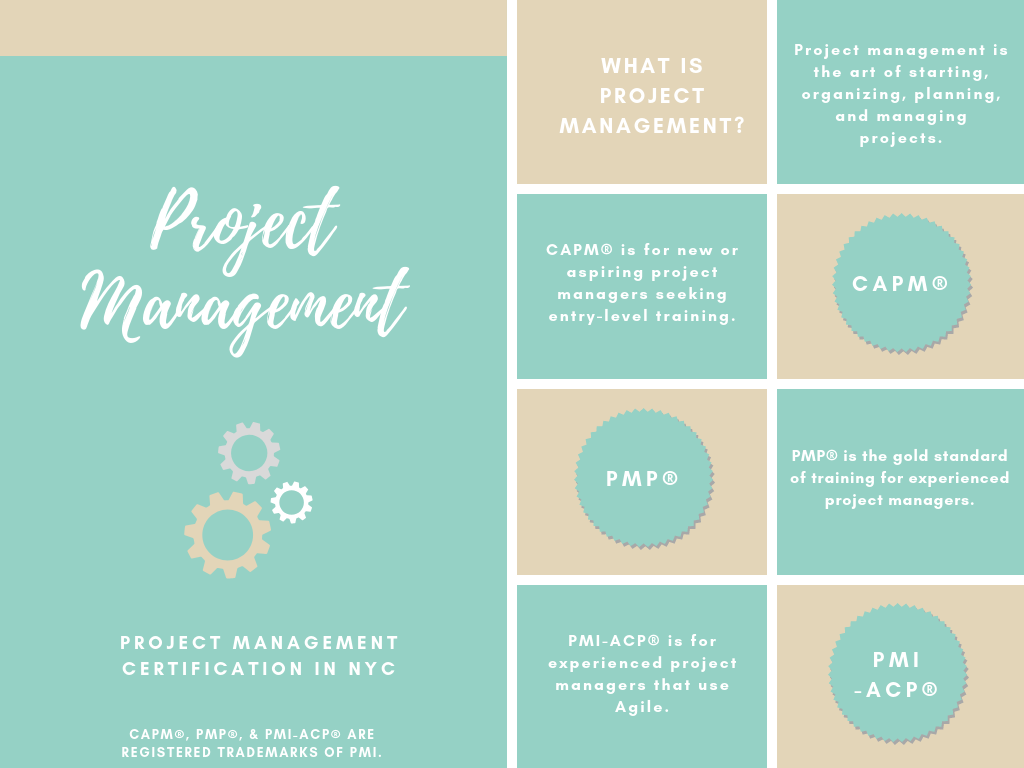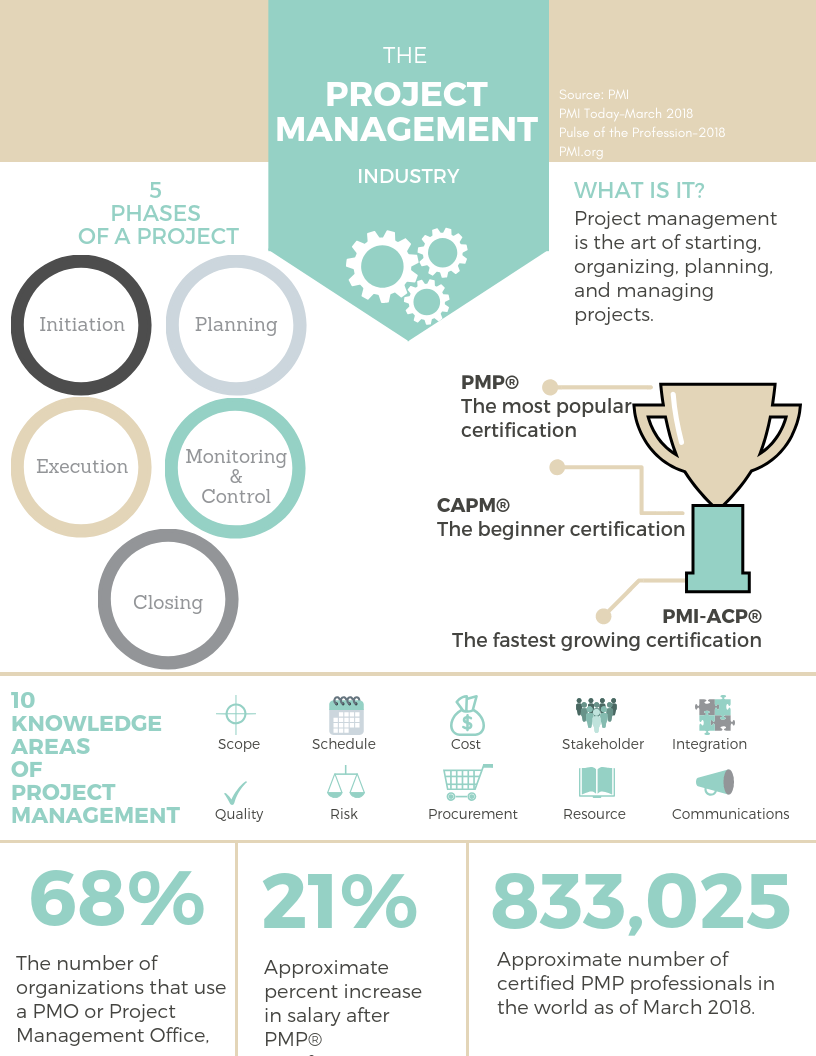What is Project Management?

Project management is the art of starting, organizing, planning, and managing projects. Key features of a project include that it is unique, not a regular process; temporary, with a definite start and completion date; and mission-oriented, initiated with a specific goal to achieve. Examples of projects include the construction of a new hotel in Las Vegas, building a mobile app, or launching a new service or branch of business.
For centuries project management has been practiced informally for everything from the construction of the Brooklyn Bridge to launching multinational offices. In the mid-20th century, project management took on a formal role in the professional world, first as a framework for completing projects, then as an official field of study, and later as a profession. The Project Management Institute (PMI), considered to be the authority in the field of project management, was established in 1969.
There are a variety of methodologies and tools used to complete projects in healthcare, construction, finance, IT, engineering, and many more industries. PMBOK®, Agile, and Waterfall are just a few frameworks and methodologies. Microsoft Project, Asana, and Jira are the most popular project management software programs used to manage workflow and tasks for teams.
What do you do as a project manager?

Managing scope, cost, and time are the critical tasks of the project manager role. The project manager ensures all project tasks close (scope), as scheduled (time), and without exceeding the budget (cost). If the project runs smoothly, and everyone does their part, the project manager’s job may seem easy. On the contrary, if the project is unsuccessful, late, or exceeds budget, the project manager is held responsible.
Typical Project Manager duties include the following:
- Researching concepts to understand project mission and deliverables
- Creating the scope of a project
- Defining a project timeline
- Developing a proposed project budget
- Facilitating meetings between project teams and stakeholders
- Sourcing supplies, materials, and human capital to complete the project
- Identifying and eliminating obstacles and unexpected problems related to the project scope, budget, or timeline
- Monitoring and reporting key performance indicators and analyzing data
- Evaluating the quality of work and milestones
- Ensuring the project is within budget, schedule, and scope
Learn more about project management on our Free Project Management Tutorials Blog.
How do you become a project manager?
To become a project manager, you can pursue a degree related to the industry you plan to work in, such as engineering, healthcare, or finance. The more common route to becoming a project manager is to obtain a project manager certification. There are a variety of project management certifications, and the type of certification you pursue depends on your industry.
Project Management Courses
Project Management courses at NYIM prepare you for the PMI Project Management Professional (PMP®) exam, considered to be the gold standard certification in project management. An introductory project management course offers the basics of project management, including the knowledge areas and project management stages. The Advanced Project Management Course digs deeper into the project management methodology.
Project Management Certifications: PMP & CAPM
Project management professionals can earn certification in both the field of project management or individual project management methodologies. The gold-standard of project management certification is PMI’s Project Management Professional or PMP® certification. Learn more about our PMP® certification training.












